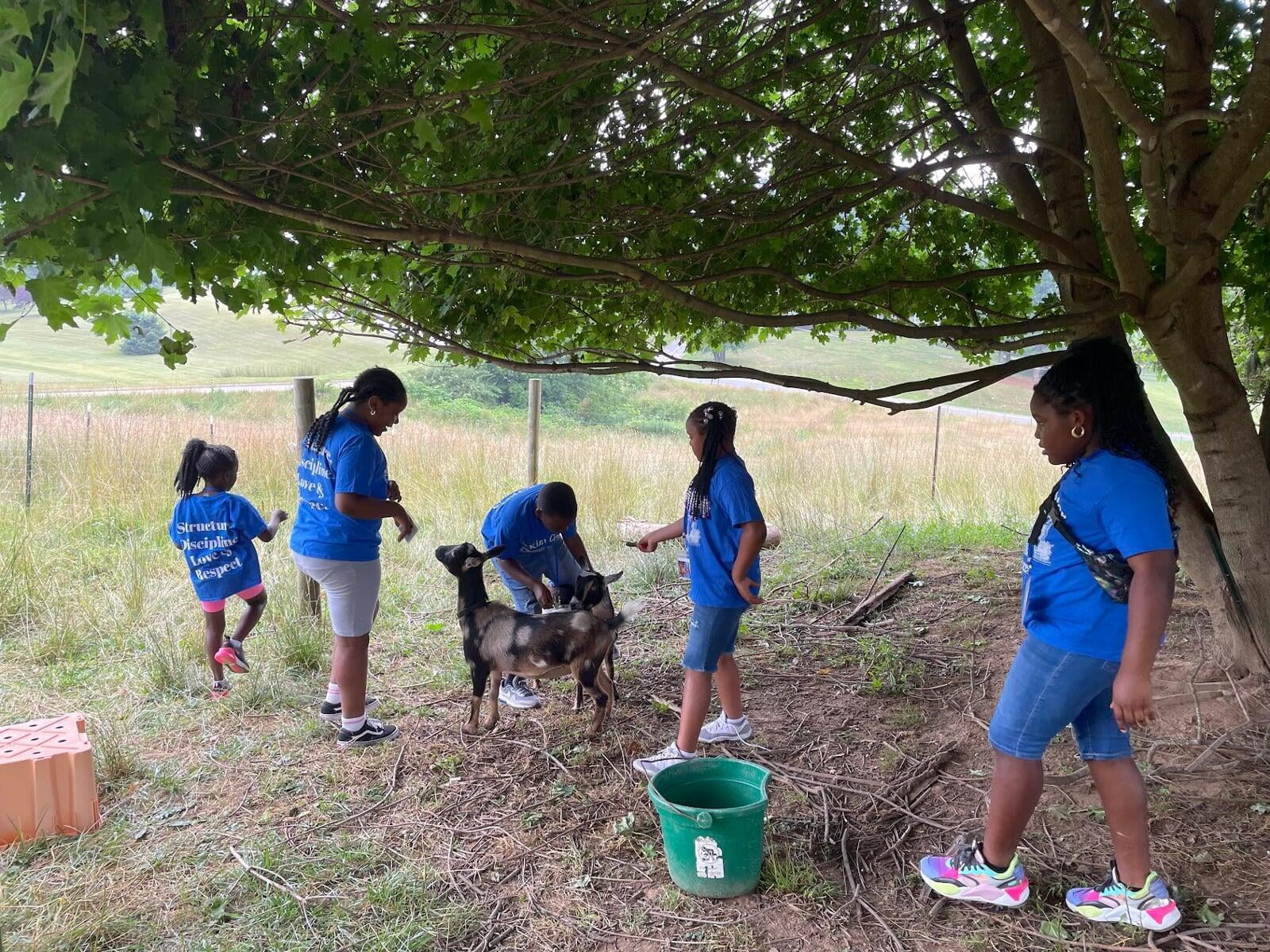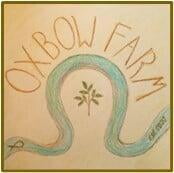
“The mystery of the poor is this: That they are Jesus, and what you do for them you do for Him. It is the only way we have of knowing and believing in our love. The mystery of poverty is that by sharing in it, making ourselves poor in giving to others, we increase our knowledge of and belief in love.” – Dorothy Day From the April 1964 Catholic Worker.
Dorothy Day is drawing from the parable of the sheep and the goats from Matthew 25 in this quote. On judgement day, Jesus says to the sheep “Come, you that are blessed by my Father, inherit the kingdom prepared for you from the foundation of the world; for I was hungry and you gave me food, I was thirsty and you gave me something to drink, I was a stranger and you welcomed me, I was naked and you gave me clothing, I was sick and you took care of me, I was in prison and you visited me…” (Matthew 25:34-34). They ask Jesus when they did those things (for they don’t remember doing them), and he replies, “Truly I tell you, just as you did it to one of the least of these who are members of my family, you did it to me.” Likewise, he condemns those who saw the poor hungry and did not give them food, thirsty, and did not give them drink, saying “just as you did not do it to one of the least of these, you did not do it to me.”
Dorothy Day’s understanding of the mystery of poverty highlights the invitation to know and love Jesus more deeply through serving the poor. And she makes it clear that this doesn’t mean just occasionally volunteering at church events or service projects, but “making ourselves poor in giving to others.” In addition to the Gospel of Matthew, Dorothy Day’s wisdom here is drawn from her lifelong experience of living in solidarity with the poor. Together with Peter Maurin, she founded the Catholic Worker movement during the Great Depression and opened houses of hospitality where volunteers live and work with those that they are serving. They make meals together, share chores, and live as a family, because ultimately, what people on the streets need most is a family. As you can imagine (and you can read about it in her book Loaves and Fishes), Catholic Worker houses are usually full of love and chaos intertwined.
We were inspired by the Catholic Worker movement when we started our farm. I often find consolation in remembering Dorothy Days’ stories when I wonder whether what we’re trying to do is just too hard; she did so much more than we could ever imagine doing. Our mission is to provide produce, hospitality, and ecological education to anyone in material or spiritual need. How we serve those in material need is simple: we sell our produce at a half price to those who can’t afford it, and we donate produce to food pantries and other community organizations. This is financially sustainable thanks to our donors and CSA members and who opt to pay extra for their produce to sponsor.
Occasionally we host people in material need through the work-for-stay program that we participate in (Worldwide Opportunities on Organic Farms), but more often than not, the need is spiritual. Many young people come to us on summer break from school, trying to figure out what they want to do with their lives. Many are seeking answers to spiritual questions. Others are burned out from jobs in healthcare, technology, or office work, and seeking a career transition; and a few are at retirement age, hoping to start their own homestead or do more gardening as a hobby. Regardless of background, just about everyone who has come to us has found the daily rhythms and slow, sweaty work of farming to be deeply rewarding and therapeutic. There is a spiritual need that a farm seems to answer for a lot of people.
Spiritual poverty or being poor in spirit is sometimes regarded among Christians as a positive thing. We are poor in spirit insofar as we recognize our ultimate dependence on God for our fulfillment. I tend to think of spiritual poverty in a different sense, as a negative thing that applies to anyone feeling isolated from God, neighbors, self, or the earth. I think of the poverty of loneliness, those in both the crowded city and in the sprawling countryside who do not know their neighbors, those who feel they don’t have anyone to call if they need help with something. I think of the poverty of not having a place to walk through the woods, look up at the trees and let your mind wander. I think of those who work themselves sick for reputation or a pay raise when they’re already making more than enough money for themselves and their families. I think of the poverty of time, that busyness that prevents us from prioritizing friends, family, and prayer. Spiritual poverty applies to anyone who lacks the wealth of a life overflowing with love.
Sometimes there seems to be an inverse relationship between spiritual and material poverty. Both my husband and I spent time serving abroad. He did Peace Corps in South Africa, and I worked for a non-profit that served indigenous farmers in Panama for a few summers when I was in college. We both appreciated the simplicity of life in those places, and the sense of familial love that extends to everyone. Even at the Govans Farmers Market (located in a food desert in Baltimore) where we sell our produce, there’s a sense of joy and celebration on market days that is unique. People dance to the background music as they’re checking out the stands. We have our regulars who are always happy to greet us with hugs, ask how things are going, chat about the news. Many of the vendors are from the neighborhood, and a lively exchange of excess produce for baked goods and the like takes place at the end of every market.
Jon Sobrino, a Jesuit priest who served in El Salvador makes the point that “visitors who arrive from places of abundance find among the poor and the victims a certain ‘something’ that is new and unexpected… ‘something’ that is good and is positive. They have found ‘salvation.’” The desire to receive God’s grace as total gift and pass it on so readily is rare among communities of wealth. While there is a danger in romanticizing poverty, Jesus warns in the gospels against the spiritual danger of greed more so than that of any other sin. It is no coincidence that those who depend on the generosity of one another for their daily existence are more ready to enter into the eternal life of giving and receiving love that will characterize the Kingdom of God. To be clear, poverty itself is not a good thing, and we shouldn’t stop trying to work for justice in alleviating it, but the fact that Jesus focused much of his ministry on the poor and marginalized of society should be reflected in the way we live a life of Christian faith.
If I had not personally had this experience, I wouldn’t be doing what I’m doing now. The beatitudes, “Blessed are you who are poor, for yours is the kingdom of God” etc. (Luke 6:20) came alive to me in a whole new way. The beauty of a life of interdependence on neighbors that material poverty requires formed my conviction that financial independence or “self-sufficiency” that American consumerist culture aspires to is meaningless. Nobody is truly “self-sufficient” and most of our modern luxuries come at the expense of those working in abysmal factory conditions in places we’ll never see. I went to graduate school after traveling abroad with the intention of finding some career that was more influential for the good than lucrative. I thought maybe I’d do something in farming and science; I wanted to have a broad impact on the world. But I eventually came to the conclusion that farming was simply the best thing I could do for my own personal sanity. The larger and more influential your scope of work, the less you get to see the fruits of your labor and know the people who enjoy them. Running a farm was the best way I knew to love God, love my neighbors, and care for the earth. I don’t know if I would have been able to make this leap which seemed like a sacrifice at the time without the life and teachings of Jesus, living in solidarity with the poor and celebrating the presence of God in humble situations.
I wouldn’t trade our current life for anything. In the past two and a half years we have had well over a hundred guests at our farm from every continent (except Antarctica) and every major religious tradition. People have stayed with us for anywhere between a few days to a few months. The range of personalities, skillsets, strengths, and hardships of the people we’ve spent time living and working with is amazing. I frequently feel the weight of spiritual poverty, both in the form of burdens that others are seeking to take a break from through farming, and our own burdens of the endless list of repairs, projects, animals and plants and people that need attention. Just when I sit down to catch up on messages or work on a blog post, another visit request comes in, something breaks, or another person shows up unannounced (not that this is a bad thing, we usually love it when people stop by!). But at the end of the day, I can’t imagine a more satisfying life, and the opportunity to witness and relate to so much diversity and depth of human experience on a personal level is just overwhelming. To quote Thomas Merton: “There is no way of telling people that they are all walking around shining like the sun.”

